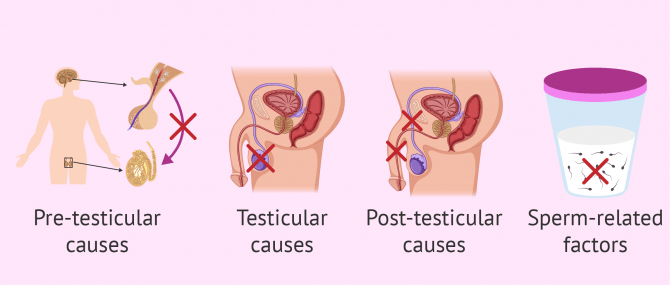Hi,
my wife is 41 and I’m 44. We’ve been trying to conceive for around 2 years and at first we totally refused to undergo fertility tests, because we were afraid that any problem could arise. We don’t like visiting the doctor actually… Anyhow, last month we came to the conclusion that it was already time to do so… so we finally did it! Both of us, actually.
Yesterday we got our results… and my diagnosis says azoospermia and my wife’s seems to be alright, although her lab report shows an asterisk (*) on the FSH hormone. The result for FSH says 15 mIU/ml, but the truth is we have no idea what does it mean. Do we need to do further tests? Do you think we will be able to become parents some day?
02/11/2016 at 4:40 pmHello ted,
I’m guessing you’ve got several factors analyzed in your fertility tests, so the only possible way you can get an accurate diagnosis is by taking into account every single parameter analyzed that may have an influence on your fertility. However, looking at what you’ve explained to me, I can say that yes, both you and your wife suffer from fertility problems, and that’s why you’ve been trying to conceive for over 2 years with no luck so far.
As for your situation, azoospermia translates into zero sperm count in the ejaculate. If there are no sperm in the ejaculate, fertilization will never occur. Nonetheless, there exist two main types of azoospermia: on the one hand, obstructive azoospermia and, on the other hand, non-obstructive or secretory azoospermia. If it is a case of non-obstructive azoospermia, achieving pregnancy can be very hard, as it means there exists no sperm production in your testicles. The causes behind it would have to be analyzed in order to determine whether any solution can be reached or not.
If, conversely, this is a case of obstructive azoospermia, the good news is that achieving pregnancy would be easier. Obstructive azoospermia means that spermatozoa are unable to be expelled due to some kind of blockage in your seminal ducts. In such case, obtaining sperm through testicular biopsy could be possible, and the assisted reproduction technique recommended would be ICSI (i.e. intracytoplasmic sperm injection).
Should neither of these types of azoospermia have a solution, you will be advised to turn to sperm donation in order to achieve pregnancy.
As for your wife, the FSH hormone, along with other types of hormones and the results of a pelvic ultrasound, might show the state of your ovarian reserve in terms of egg quality and quantity. Values above 19 mIU/ml make us suspect this is a case of low ovarian reserve, whereas values above 13 mIU/ml indicate the woman is close to menopause, that is, her ovarian reserve is very low, close to having no eggs at all.
Even though it is still necessary to confirm this diagnosis with further tests and analyses, the most probable is that your wife is unable to get pregnant with her own eggs either because she does not produce eggs or because their quality is too poor. In this case, egg donation would be the solution toward parenthood.
I hope I have been able to help,
Best of luck!
02/18/2016 at 5:09 pm
Other topics related to this forum
Messages
Updated

